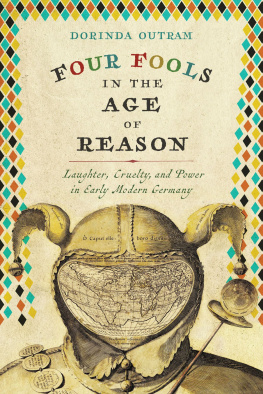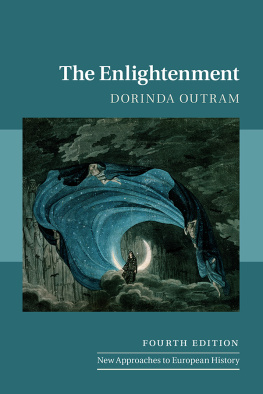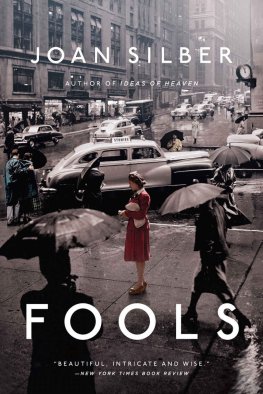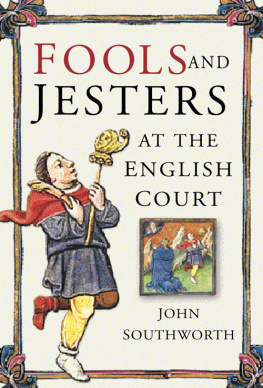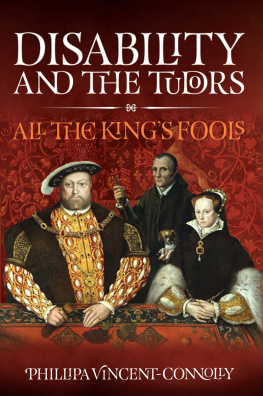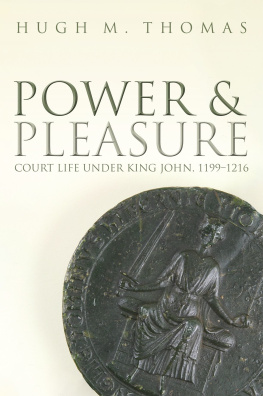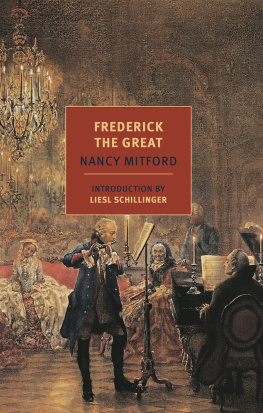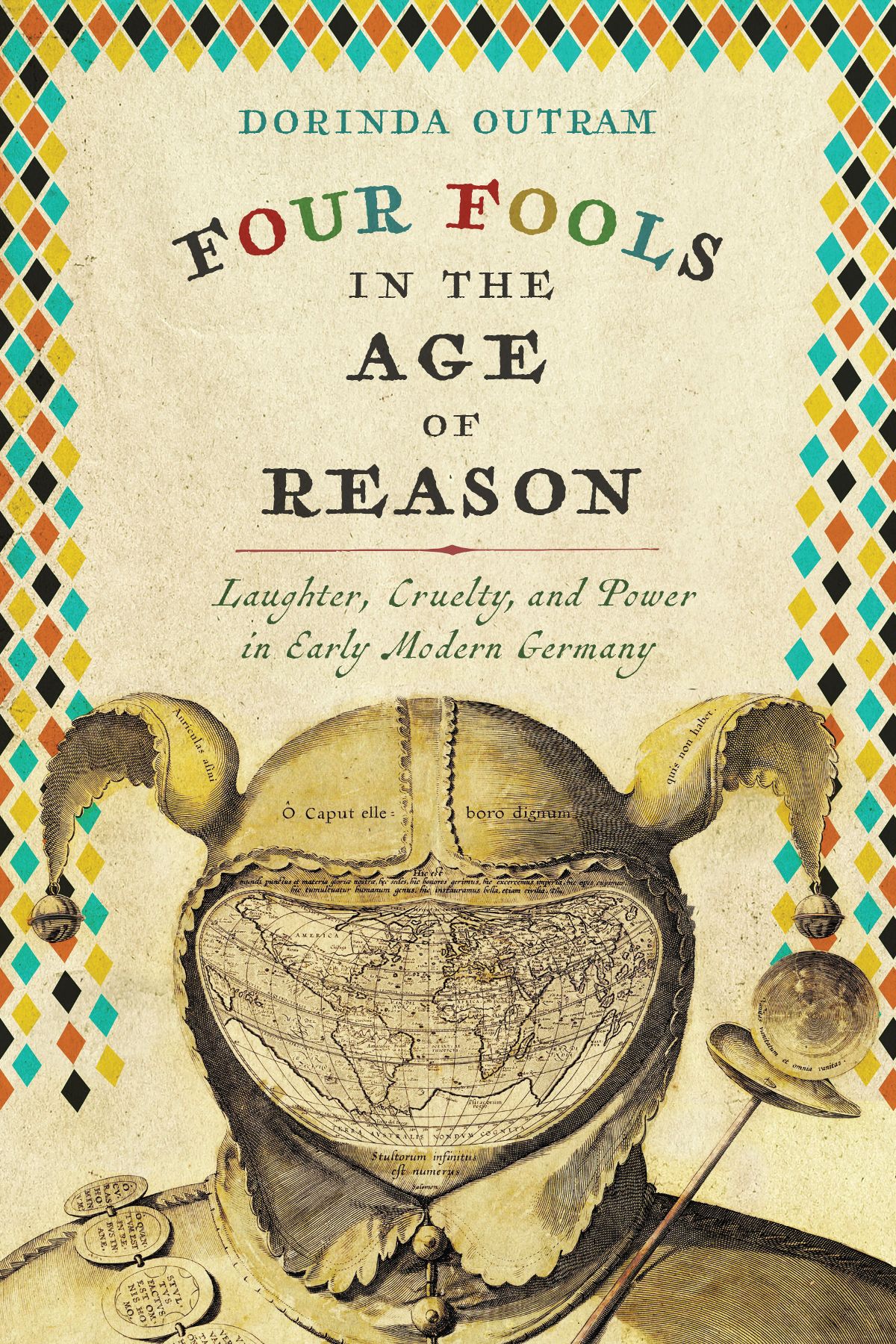
Four Fools in the Age of Reason
Studies in Early Modern German History
H. C. Erik Midelfort, Editor
Dorinda Outram
Four Fools in the Age of Reason
Laughter, Cruelty, and Power in Early Modern Germany
University of Virginia Press
Charlottesville and London
University of Virginia Press
2019 by the Rector and Visitors of the University of Virginia
All rights reserved
Printed in the United States of America on acid-free paper
First published 2019
1 3 5 7 9 8 6 4 2
Library of Congress Cataloging-in-Publication
Names: Outram, Dorinda, author.
Title: Four fools in the age of reason : laughter, cruelty, and power in early modern Germany / Dorinda Outram.
Description: Charlottesville : University of Virginia Press, 2019. | Series: Studies in early modern German history | Includes bibliographical references and index.
Identifiers: LCCN 2018046953 | ISBN 9780813942018 (cloth : alk. paper) | ISBN 9780813942025 (e-book)
Subjects: LCSH: Fools and jestersGermanHistory18th century. | GermanyCourt and courtiersHistory18th century. | GermanyCourt and courtiersBiography. | Gundling, Jacob Paul, Freiherr von, 16731731. | Morgenstern, Salomon Jakob, 17061785. | Frhlich, Joseph, 16941757. | Prosch, Peter, 17441804. | GermanySocial life and customs18th century.
Classification: LCC GT3670.5.G4 O87 2019 | DDC 792.702/809dc23
LC record available at https://lccn.loc.gov/2018046953
Cover art: Fools Cap Map of the World. (Ashmolean Museum)
You have to find a way to put the extremes together, not necessarily by diminishing the extremity of each one, but to form the art of transition.... You have to keep the extremes but find the link, always find the link, so that there is an organic whole.
Daniel Barenboim to Edward Said, 2004
Contents
Individual authorship is a polite fantasy. Many people have contributed to the making of this book over a long period of time, often more than they were aware of. First of all must come Martin Gierl, who would not let me dedicate this book to him. Without him this book would not exist. It was he who read an earlier version of chapter 1 and told me I had not an article but a book. His steadfast support sustained through difficult times. The hospitality that he and Michaela Hohkamp extended in Berlin and Gttingen did much to reassure me of the joys of writing, reading, and simply talking history. I would also like to acknowledge the support given to this project by H. C. Erik Midelfort, who accepted a letter and a packet of typescript nearly out of the blue, and by Beth Plummer, who advised me to send the letter and the packet. Bill Bell, Ritchie Robertson, and Jrgen Schlumbohm sustained my spirits, and, last but not least, Hans Bdeker provided, at a difficult time, constant intellectual stimulation, mixed with kindness and humor. Anthony LaVopa asked questions. Answering them greatly improved this book.
It is rare to express fondness for an institution, but I will do so now: the Herzog August Bibliothek in Wolfenbttel showed itself a wise, kind, and humane institution in its daily dealings with scholars, and on special occasions that I will not detail here. Its magnificent holdings were a constant support and delight during a project that often required obscure materials. Jill Bepler, leader of the Fellowship program at the library, maintains an extraordinary mixture of moral sensibility and practical efficaciousness. Frau Gerlinde Strauss dealt with the numerous problems that arose during my two stays at the library in 2015 and 2014 with efficiency moderated with Schwung. The reading room of the library became a home away from home, and it was there that I began to understand something of the life of fools. And historians.
At the Lichtenberg-Kolleg of the University of Gttingen, I was given four uninterrupted months in the fall and winter of 2016 to put the finishing touches to this book. Whether this confidence was well placed is for the reader to judge. Martin van Gelderen and Dominik Hnnigers leadership in both practical and intellectual matters is a treat to behold. Seminars and reading groups create an intellectual community. In spite of Gttingens weather, many friendships were formed here
At the Staatliches Museum in Dresden, which contains the so-called Grnes Gewolbe, I was astounded by the generosity of curator Dirk Weber, who offered to show me the two extraordinary figures of Joseph Frhlich that are reproduced in these pages and to do so at a time when the museum was closed to the general public.
I would also like to thank my Department Chair, Professor Matthew Lenoe, for supporting my requests for leave in 2015 and 2016, and the University of Rochester for granting them.
Four Fools in the Age of Reason
Numerus Stultorum Infinitus Est
The fool does not necessarily inhabit a beautiful or romantic world.
Enid Welsford, The Fool: His Social and Literary History (1935)
This is a book about fools in the Age of Reason, that time running from the end of the seventeenth century to the French Revolution, which began in 1789. It is mostly concerned with fools and fooling at princely courts in Austria and the German states, with sidelights on England, France, and Russia. It tries to understand the nature of these courts through a reconceptualization of fooling, and it puts that fooling against some of the central concerns of the Enlightenment. It examines the life of four famous foolsPeter Prosch (17441804), Salomon Jacob Morgenstern (17081785), Joseph Frhlich (16941757), and Jacob Paul Gundling (16731731), as case studies of the way humoroften black humorwas used as a way of making human community, controlling human waywardness, and strengthening power. Cruelty and the exploitation of the weak by the strong were integral to this humor and will give rise to some difficult moments for readers. This book also carries along with it some thoughts sparked by the writing of history in general, and of a book about fools in particular. It ends with the story of how I, as a fool, came to write this book about fools, a story that contains both cruelty and joy.
This is the first time that these four fools have been studied together, and rescued, I hope, from their half-lives as literary and historical curiosities. It is also the first time that their lives as fools have been examined in the context of Enlightenment, court, and power. Their discoveries about the Enlightenment form the fabric of this book.
Even that most gloomy book of the Bible, Ecclesiastes, reassures us, first of all, that the number of fools is infinite (1:15). I am therefore a fool (doubly, for it is also true that anyone who writes about fools must be a fool too), and you too are a fool, dear reader. This book enrolls us all in the company of the foolish, and allows us, as fools in the present, to understand other fools in the past. I make no apology for enrolling myself as a character in this book.
In what voice will we speak about our discoveries? Surely, a quiet one. For this will not be a history built around controversies, where historians lose their tempers, raise their voices, and parade their expertise until it almost dies on a forced march. I do not believe that. It is a statement that smacks of hubris. How can any human creature lay claim to detachment?
What are we studying when we study the history of fools and foolishness? We are studying the lives and work of experts in foolishness, professional entertainers who were by turns buffoons, jesters, and poets, who worked using a combination of crude physical humor and pointed repartee, at large and small courts all over Germany, from the end of the seventeenth to the end of the eighteenth century. These were not the creatures dressed in cap and bells of the medieval and Renaissance periods. They were not the Fool in

